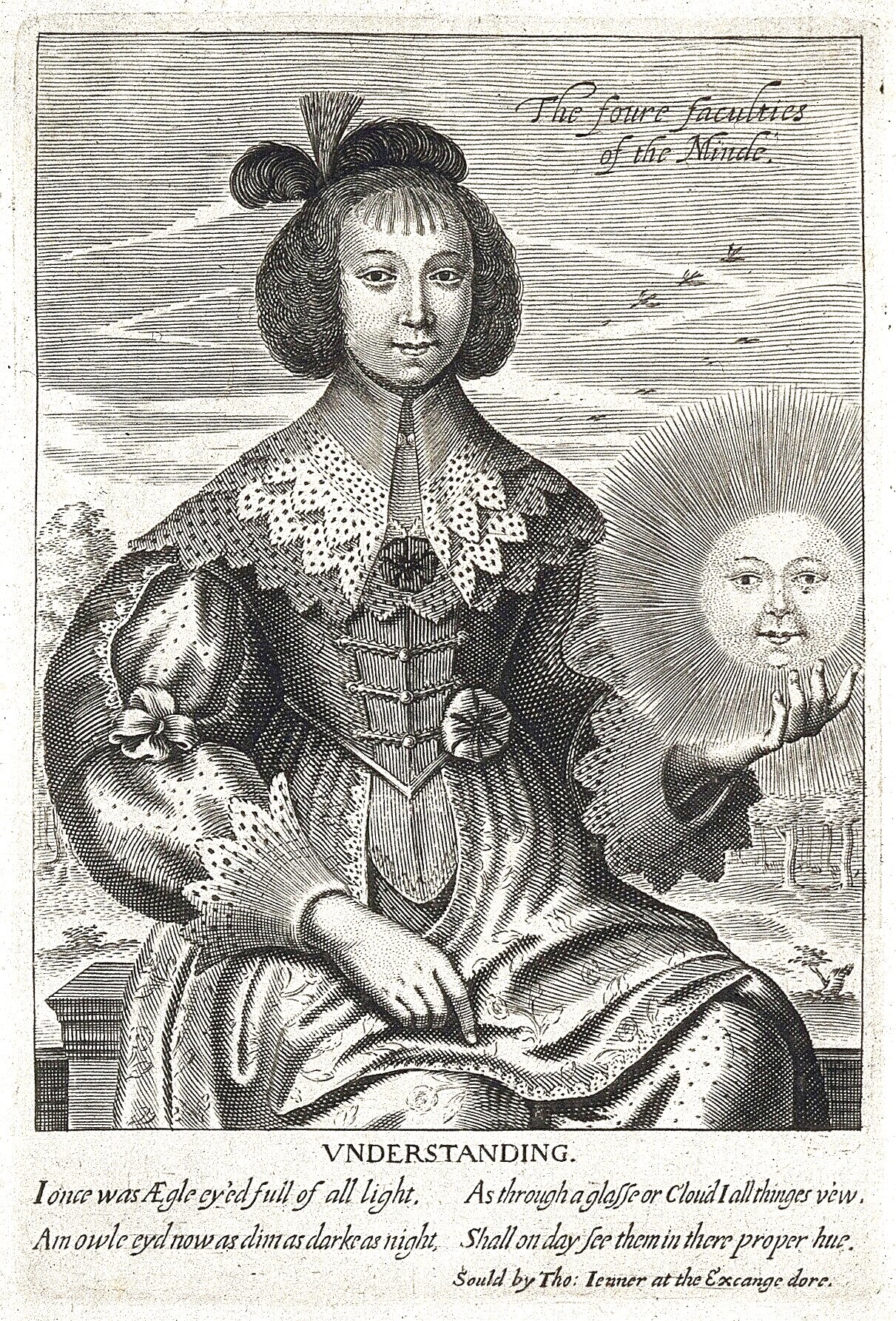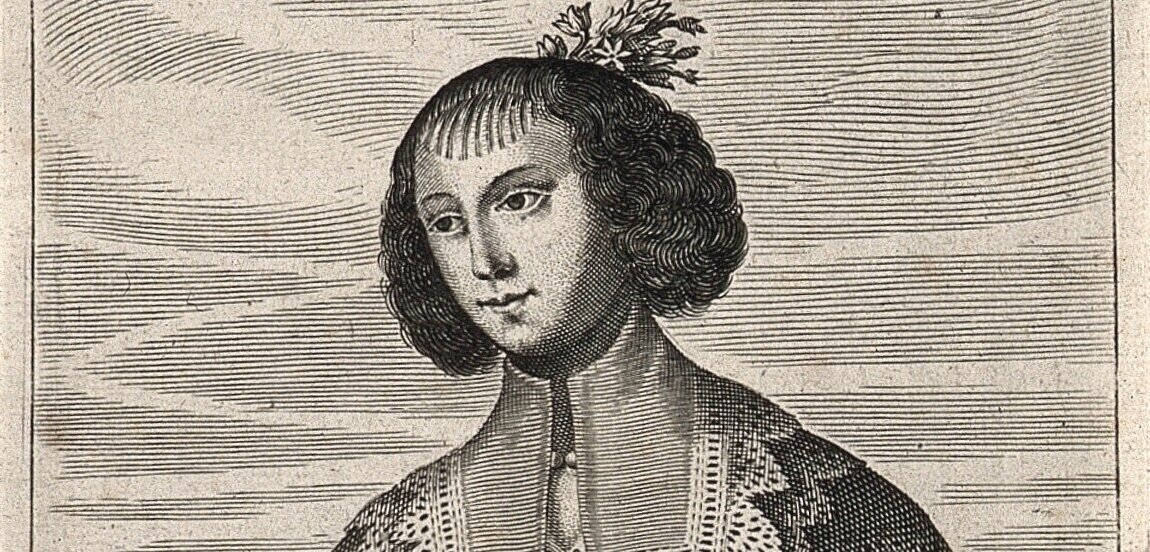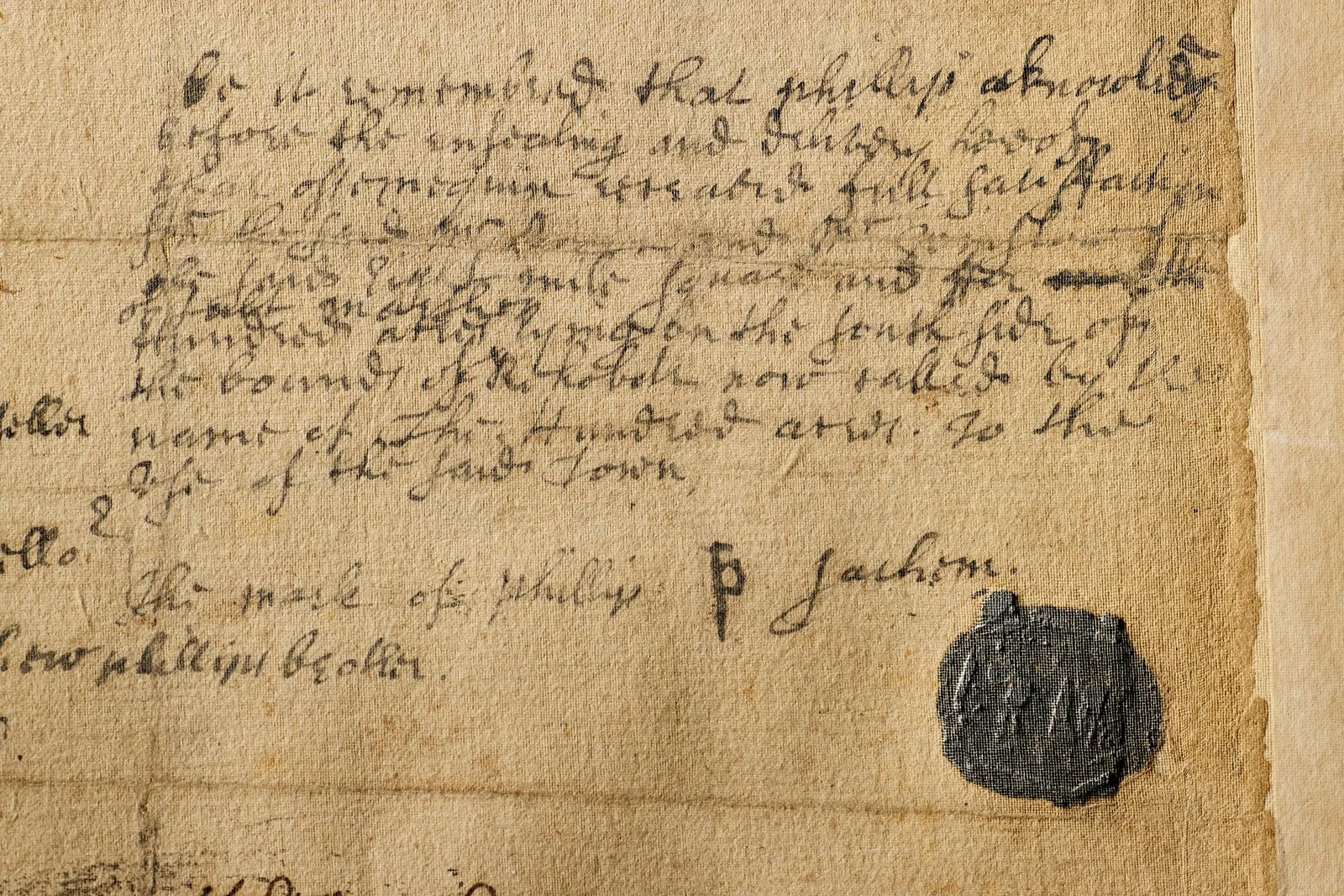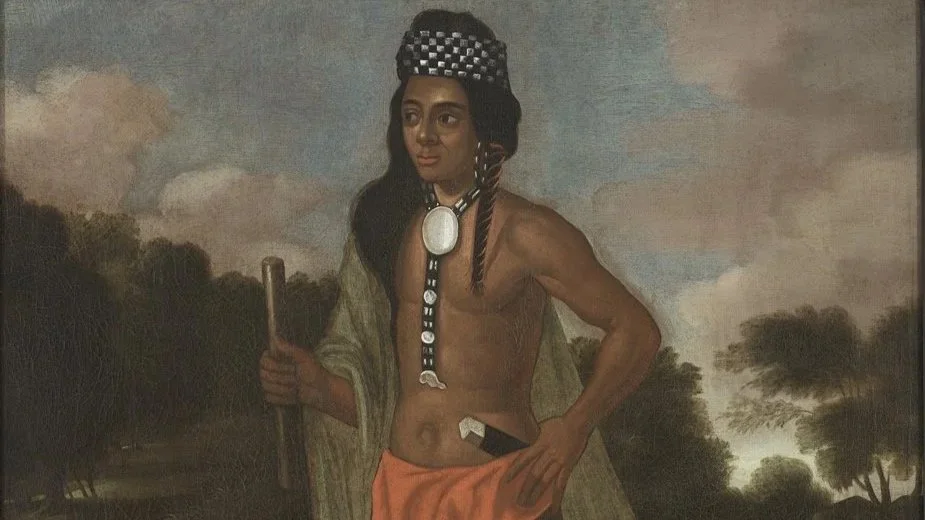
Blog
their marks
This document, a rare written record of the signature of Metacom, or Philip, is one of dozens of Indigenous marks gathered by Brown University’s curator of Indigenous collections, Kimberly Brown. Her Instagram project @TheirMarks is a stunning reminder of the presence of Indigenous people throughout New England’s economy, society and religion - and of their role as dynamic participants in New England life. Powerful and gripping, this is an important antidote to the erasure of Indigenous people.
Unexpected revolutionaries
In England, what parliament and its allies regarded as tyranny led to civil war, the execution of Charles I, and a republic. In New England, resistance to tyranny led to guaranteed rights and liberties for white colonists and even, in a limited way, enslaved people, Native people and “foreigners”. Francis J. Bremer relates the remarkable story of the 1641 Body of Liberties and the rights it enshrined - rights still worth fighting for.
Indigenous Peoples Day
Honor Indigenous Peoples Day at events all around Massachusetts. We’re going to Newburyport, MA. for a day-long celebration on Saturday, October 11, including the launching of a mishoon, but there are events close to wherever you are, starting now but running until Monday October 13. Have a look at the line-up we’ve compiled! And let us know what you thought of your experience at phbostons@gmail.com
a path not taken
We think of Congregationalism as rooted in Puritan New England. In her groundbreaking reading of church records, Lori Rogers-Stokes finds the opposite: an Indigenous-English collaboration, in which Indigenous people not only fully participated but shaped a Congregationalism built on reciprocal relationships and kinship. What if this ideal had been the model for Massachusetts society? Lori Rogers-Stokes looks at the path not taken.
“Knowing the full picture can’t help but change who we think we are”
When we asked our audience “Why was the 17th century important?” they replied with a multitude of thoughts. From the founding of the Bible Commonwealth to the start of slavery, they told us why the 17th century mattered then - and now. Read the two prize-winning entries and a round up of survey responses in our summer competition. Eloquent, didactic, knowledgeable, speculative - it’s all there.
who tells the story?
Who tells the story - the powerful or the powerless? In this trenchant review of Jared Hardesty’s Black Lives, Native Lands, White Worlds, Evana Rose Tamayo tells us why we should rush to the library or bookshop to read this book. Hardesty reveals the harshness of New England enslavement, she writes, but also the ways that enslaved people created their own identities, communities and freedom.
foundational rights and freedoms: the 1641 body of liberties
The Massachusetts Body of Liberties, agreed by Massachusetts towns in 1641, comprised a set of rights and freedoms unprecedented in the English-speaking world. How did Massachusetts decide to do such a thing? Weren’t the Puritans, as many claim, Christian Nationalists, wedded to the merging of church and state? Was Puritan society a bastion of intolerance? In this in-depth article, author Lori Rogers-Stokes explores the Body of Liberties, and what it means for us today.
The beginning of english new england
We think of colonial Massachusetts as the home of John Winthrop’s puritans - but it was Plymouth’s more uncompromising puritan colonists who established the New England Way of church practice. Broad participation and self-governance - these were the keys to congregationalism, writes historian Francis J. Bremer.
enslavement in the puritan village
Sudbury, Massachusetts - second only to Concord in new colonial settlements west of Boston, lauded as the quintessential Puritan village. But was it? As author Jane Sciacca found, there was an underside - if you looked for it. In her new book, from which this article is excerpted, she explores the intimate nature of slavery in Sudbury, the lives of enslaved people, their enslavers, and the cost of the underside of the Puritan village.
this american jezebel
Watch this powerful presentation by award-winning author Eve LaPlante (and Partnership of Historic Bostons adviser!), given in Rhode Island on November 21, 2024. Nearly four centuries after Anne Hutchinson’s infamous trial in, and expulsion from, the Massachusetts Bay Colony, her story as a woman with conviction and strength lives on.
what were the puritans thinking?! a sermon
What were the Puritans thinking? What possessed them to get on small, ticketing boats and venture out into the tumultuous Atlantic Ocean? My weather app tells me that there are riptides and 10-foot waves in the Atlantic today, so I can only wonder at the Puritans’ decision.
So begins the sermon by the Rev. Stephanie May, first woman minister of First Church Boston, as she explores the meaning of the Puritans’ little democracy and the legacy it has left us today - for better and worse.
The vote: change the flag and seal
After a statewide consultation, Massachusetts governor Maura Healey has finally signed the bill to change the Massachusetts flag, seal and motto! The decision marks the culmination of years of campaigning by Indigenous Tribes and their supporters, who argue that the image of a Native man under a sword is a colonial relic. We don’t know what the new flag will look like - stay tuned! But here’s the story so far.
the humility of john winthrop
At a time when certain politicians have had a hard time leaving office - and hundreds more, at the highest level, endorse that resistance - we look to Massachusetts’ first governor, John Winthrop, for a lesson in how to respect democratic elections.
the world of john winthrop
Historian Francis J. Bremer offers a vital crash course on the lives, beliefs, and vision of New England Puritans’ new society - placing these English colonists within their own time, with their belief in magic, diabolical forces, and the power of faith. Essential reading as we near colonial Boston’s 400th anniversary.
In Massachusetts, You can have your say
Massachusetts’ state flag and seal are increasingly controversial, with their central image of a Native man with a sword wielded over his head. Now a state commission is asking for Massachusetts residents to decide: should the flag and seal change?
Sermon? Treatise? or not by Winthrop at all?
Was it a sermon, a publication - or not delivered by John Winthrop at all? Renowned scholar Francis J. Bremer examines the debate over Winthrop’s Model of Christian Charity and concludes that it was given, in person, in Southampton, England, on the eve of the Great Migration. As we head towards the 400th anniversary of Boston, Massachusetts, why is it so important?
Behind the scenes at the museum
An Act Against Conjuration, Witchcraft, and Dealing with Evil and Wicked Spirits. The mark of Squaw Sachem on a land deed. A law proclaiming "A" for adultery. These documents take us behind the scenes at the Commonwealth Museum and Massachusetts Archives to witness the 17th century firsthand.
RESCUING HISTORY AT SOWAMS
Sometimes history is hidden in plain view. That’s what Dave Weed found when he began to look around in the Sowams area of Rhode Island: the signs and monuments of the Pokanoket, lost, ignored, made invisible. His Sowams Heritage Area Project aims to restore this history and to honor the 53 sites, colonial and Native, within it.
“She-Preachers” and Female teachers in puritan new england
Witches, heretics, or “good wives”? The options for 17th century women, as defined by men, were few. Renown historian Francis J. Bremer argues that if we look behind typical histories, we see that women played a vital, even leading, role in shaping and perpetuating religious culture, particularly Puritanism.
occupying massachusetts
Photographer Sandra Matthews explains how she came to document the layers of history of the Massachusetts landscape - producing the evocative images of her new book, Occupying Massachusetts: Layers of History on Indigenous Land, with texts by David Brule and Suzanne Gardinier.

“Dear Father, I am far distant from you…”
- letter from Mary Downing in Boston to her father in England, November 27, 1635




















